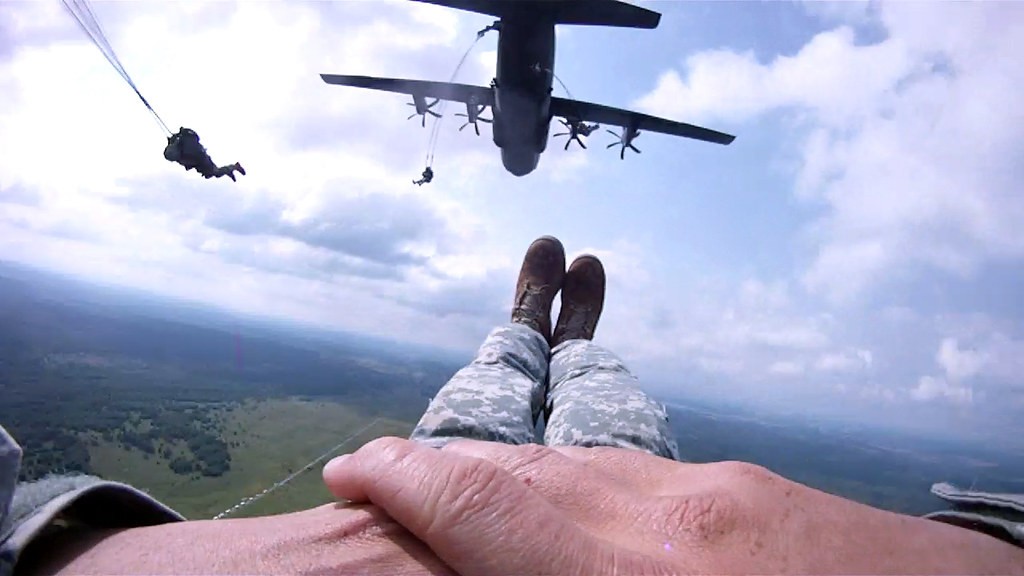Background
Nuclear weapons have long been a source of fear and a barrier to world peace. While the majority of countries around the world are striving for a world without nuclear weapons, some countries, including Ukraine, are still armed with them. Since gaining independence from the Soviet Union in 1991, Ukraine has been in possession of a significant amount of nuclear weapons.
Modern Ukraine and nuclear weapons
Ukraine has always had a strong stance on nuclear weapons. As a member of the Nuclear Non-Proliferation Treaty (NPT) since 1994, Ukraine has made a commitment to renounce the development, production, stockpiling and use of nuclear weapons. Despite this, it is believed that Ukraine still holds a stockpile of nuclear weapons inherited from the Soviet era.
In total, it is estimated that Ukraine inherited from the Soviet Union some 3,000 nuclear warheads. Today, however, estimates vary on how many nuclear weapons Ukraine still holds. It is believed that since the dissolution of the Soviet Union, Ukraine has significantly reduced its stockpile of nuclear weapons and is now estimated to have around 500 warheads.
Ukraine’s nuclear disarmament
Ukraine’s nuclear disarmament program began in 1994, when Ukraine signed the Trilateral Agreement with the United States and the Russian Federation. The agreement meant that Ukraine had to completely eliminate and destroy its stockpile of nuclear weapons, as well as dismantle all production facilities and cease any further production.
The disarmament program has been largely successful. By 2001, it is estimated that Ukraine had eliminated most of its nuclear weapons, reducing the stockpile from 3,000 warheads to around 500. This process was completed with the help of NATO and the United States, who provided both financial and technical support.
In addition to its disarmament efforts, Ukraine has also signed several international treaties which aim to prevent the proliferation and spread of nuclear weapons. Ukraine is a member of the International Atomic Energy Agency (IAEA) and is in full compliance with the NPT.
President Poroshenko’s stance
The disarmament program is an important issue that is firmly supported by President Poroshenko. In his opening speech to the Ukrainian Parliament in 2015, Poroshenko declared that the complete denuclearization of Ukraine remained a key strategic priority for the country. He declared that Ukraine would remain committed to its international obligations and would continue to cooperate with UN agencies and with other countries in the disarmament effort.
Ukraine is a strong advocate of the non-proliferation of nuclear weapons and has consistently supported international initiatives that aim to limit and reduce the spread of nuclear weapons. Ukraine has been actively participating in disarmament forums and other international initiatives aimed at preventing nuclear proliferation.
Political Challenges
Despite Ukraine’s efforts to reduce its nuclear arsenal, it remains a source of political tension in the region. In 2014, the annexation of Crimea by Russia sparked threats of further military intervention and raised fears of a regional nuclear arms race. This has led to increased political tensions between Ukraine and Russia and has hindered Ukraine’s efforts to reduce its nuclear weapon stockpile.
Furthermore, the political crisis in Ukraine has also caused economic difficulties, making it difficult for the government to fund its disarmament program. This has resulted in delays in the process of disarmament and has weakened Ukraine’s position in the international arena.
The Future
It is clear that Ukraine is still in possession of a significant amount of nuclear weapons, regardless of the efforts that it has made to eliminate them. However, despite political tensions and economic difficulties, Ukraine is continuing to move in the right direction by taking steps to reduce its nuclear arsenal.
In the future, it is likely that Ukraine will further reduce its stockpile of nuclear weapons. It is also likely that it will continue to remain committed to its international obligations and continue to cooperate with other countries in the disarmament effort.
International Organizations
International organizations such as the United Nations and the IAEA have been instrumental in supporting Ukraine’s disarmament efforts. They have provided technical and financial assistance to Ukraine, as well as assistance in negotiating with other countries.
The international organizations have also organized various initiatives to spread awareness about the dangers of nuclear weapons and the importance of disarmament. These initiatives have been aimed at both the general public as well as the political and military leadership.
In addition, they have also organized a number of dialogues between countries in order to promote dialogue and diplomatic solutions to nuclear disputes. This has gone a long way in helping to reduce conflicts and creating a better world.
Conclusion
Ukraine had inherited a significant amount of nuclear weapons from the Soviet Union, yet since 1994 it has been in the process of reducing and eliminating its stockpile. The disarmament efforts made by Ukraine have been supported by a number of international organizations such as the United Nations and the IAEA. The future holds much promise and Ukraine is likely to continue reducing its nuclear weapons while adhering to its international commitments.




